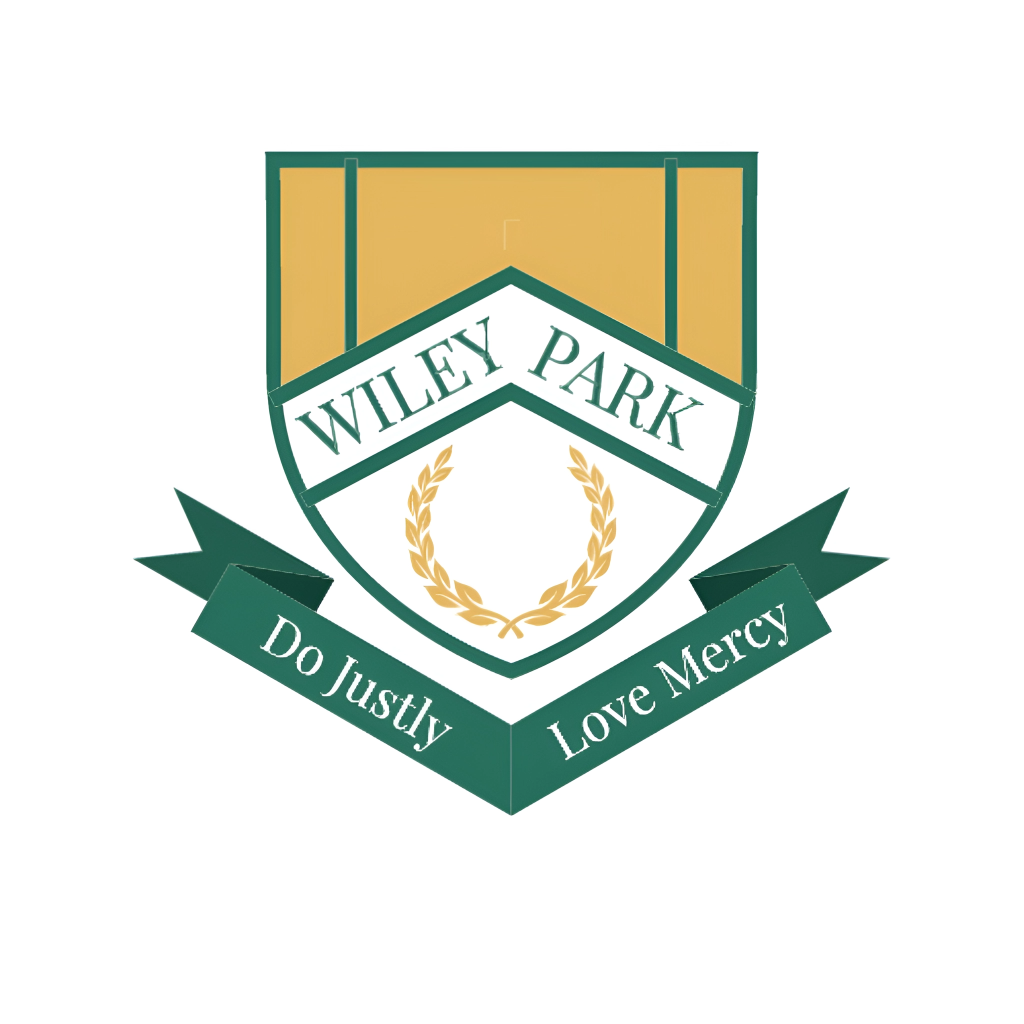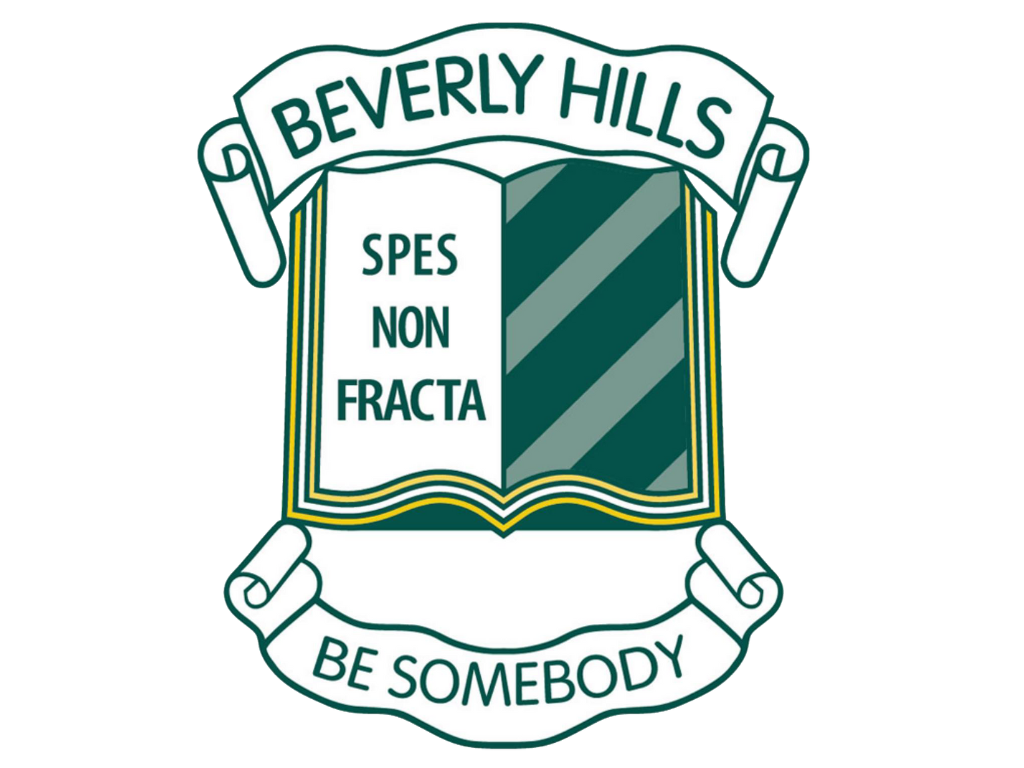Although most people don’t see Year 10 as an important year, we’re here to tell you that it is perhaps one of the most important years in your schooling career. It is a year of decisions! These decisions need to be informed choices that help you maximise your results and future proof your choice of university and/or other tertiary studies.
So where do you begin? Well, in this blog we’re going to break down the important things you need to know to help you make these decisions. These include:
- What is the ATAR?
- What are HSC Marks?
- How does Scaling work, and why is it important?
- Selection Ranks
- Adjustment Factors
- Prerequisites
- What subjects do I choose?
What is the ATAR?
The ATAR is a rank, not a mark, and is a number between 0.00 and 99.95 with increments of 0.05. This is the final rank given to you by UAC (the University Admission Centre), that will be used to assess your eligibility into your chosen course/s. It comprises of 10 units: your mandatory English Mark (2 units) and your four highest subjects (that are 2 units each = 8 units).
What are HSC Marks?
Your HSC Marks provide information about how well you performed in each of the courses you have completed, and these scores are then moderated/scaled against standards set by NESA (the NSW Education Standards Authority). They are made up of an average of both your exam raw mark (the mark you received in the exam) and the assessments that you have completed throughout Year 12.
For more information about how the ATAR compares to the HSC mark, visit our blog post “What Is An ATAR And How Does It Work?”
How does Scaling work?
Scaling is designed so that marks in different courses can be compared with each other properly and fairly. Courses are scaled using the mean scores and distribution of marks, which indicate the ability of the course candidature. Courses such as HSC Mathematics Extension 2 and Physics traditionally scale well because of this. However, you must achieve high HSC marks to gain any benefit from scaling. Also, courses should not be chosen because they may scale well. Courses should be chosen according to your interests, aptitude and aspirations.
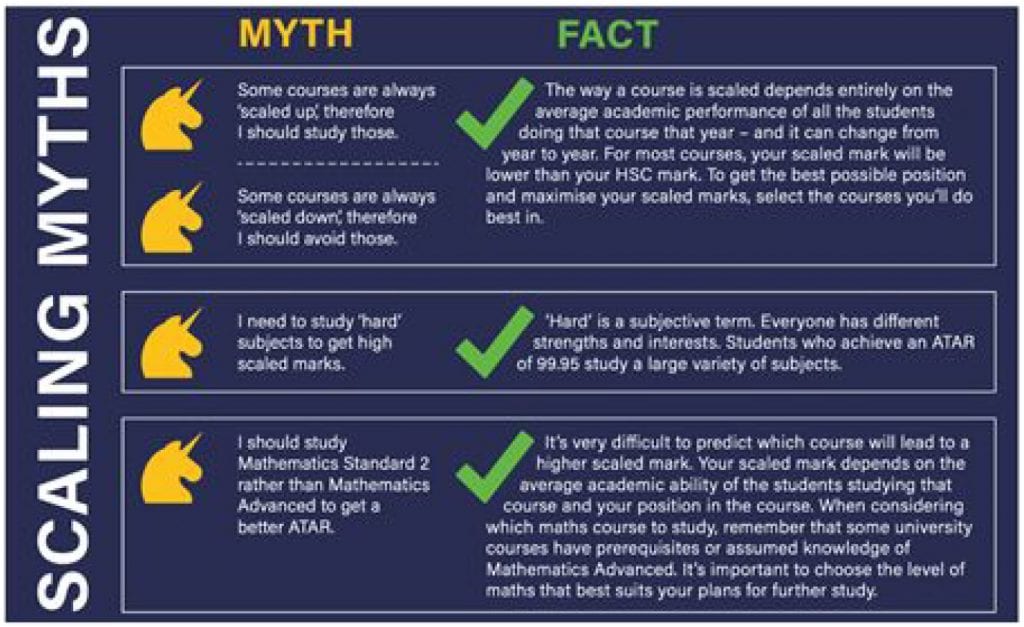
Selection Ranks – What are they?
Previously known as ‘cut-off marks’, a selection rank is usually your ATAR plus any adjustment factors you are eligible for. For example, if you do well in an HSC course related to the degree you want to study, the university might increase your selection rank for that degree. The lowest selection rank required to be offered a place in a course is determined by:
- the number of places available in the course
- the number of applicants for the course
- the quality of those applicants.
This means that the lowest selection ranks change from year to year and are impossible to predict before applicants are selected for a particular course in a specific year. However, preceding years selection ranks can be used as a guide, to help you set your goals.
Adjustment Factors
These are factors that universities consider in order to increase your selection rank for a particular course (e.g. educational disadvantage or high achievement in an HSC course related to your preferred degree). It is important to note that they do not change your ATAR.
These adjustments are due to factors such as:
- strong performance in HSC courses
- living or attending school in a certain area
- recognition of educational disadvantage.
Selection rank adjustments are applied differently from university to university and from course to course within the same university.
Prerequisites: What do I need to consider?
Students should pay careful attention to the following information:
1) Course prerequisites: Some tertiary courses require a student to have achieved a certain standard in an HSC course or equivalent before they will be offered a place in that course.
2) Subject prerequisites: Some subjects in tertiary courses require a student to have achieved a certain standard in a specific HSC course before the student is able to enrol in those particular subjects.
3) Assumed knowledge: Some institutions assume a student has knowledge of specific HSC courses or equivalent before they begin the course.
4) Recommended studies: These are HSC or equivalent courses that the institutions suggest will help a student in their chosen tertiary course.
Although NSW institutions have few prerequisites and many offer bridging courses where required subjects or standards are not met, students need to be aware that bridging courses are not equivalent to the two-year HSC course. They may add a significant study load and increased course fees as a result.
These are two examples that require prerequisites, that students should pay attention to:
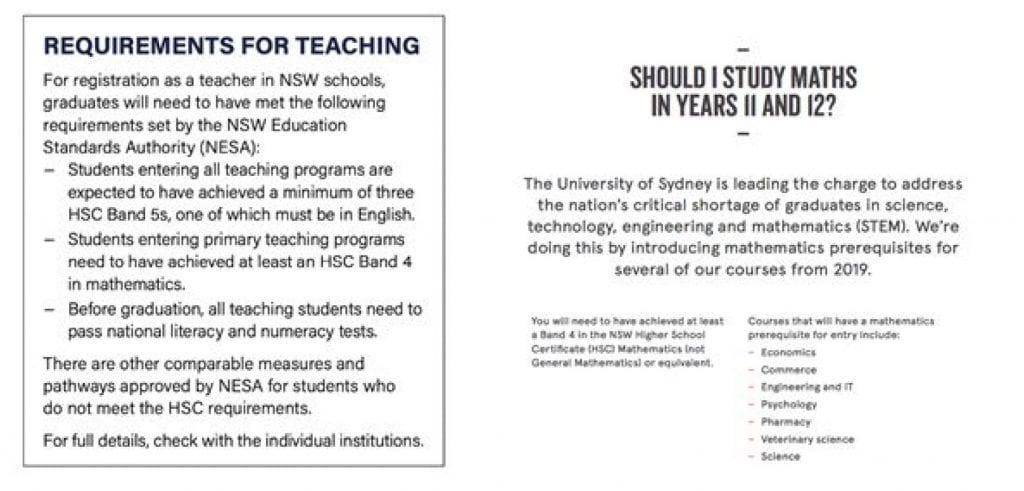
Subject Selection
Now that you know all of the above, the next step is to start thinking about your goals and vision for your career.
It is very common, for students not to know what they want to study at university or what they want to be when they finish school. Navigating through Years 11 and 12 without a goal or vision is like driving at night without headlights. We are not saying it is impossible, but we believe it’s safer and easier to do so. To help you figure out what you want to do, follow these steps:
- The first step is to think about WHO YOU ARE: your interests, qualities and skills.
- Write these in the Subject Compass tool provided by UAC, found here.
- Then the Compass will match your interests, qualities and skills with those provided by the UAC Guide to help you choose the most suitable degree.
- Selecting the most appropriate degree allows you to choose the CORRECT subjects.
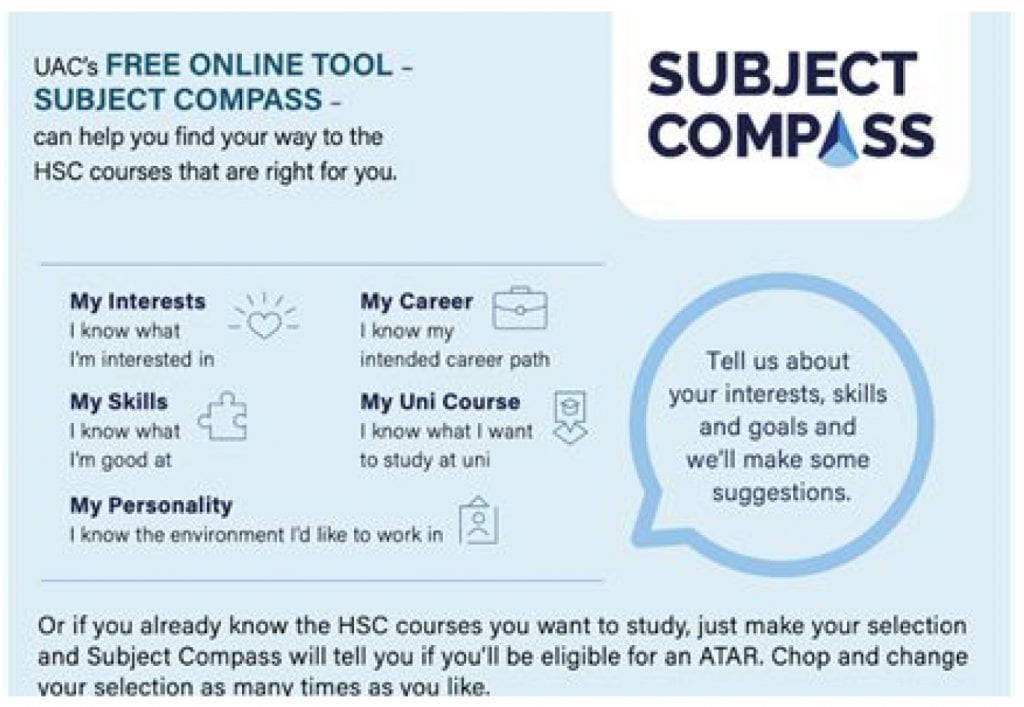
Still not sure?
Luckily for you, we run an annual Year 10 Subject Selection Advice Seminar. We dissect the above and have a Q & A afterwards with our experienced, high achieving team who come from different disciplines across different universities. Click here to find out more about the event ‘Year 10 Subject Selection Seminar’.
